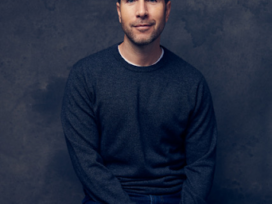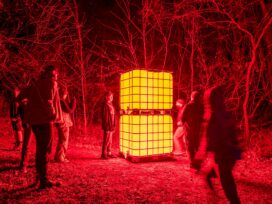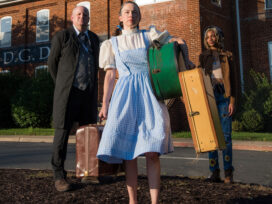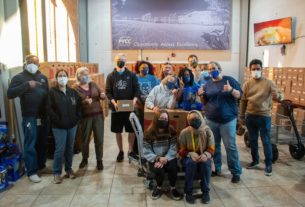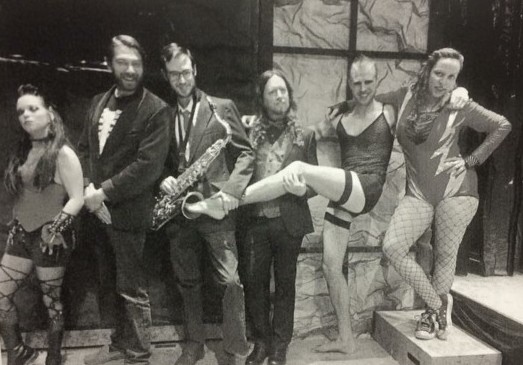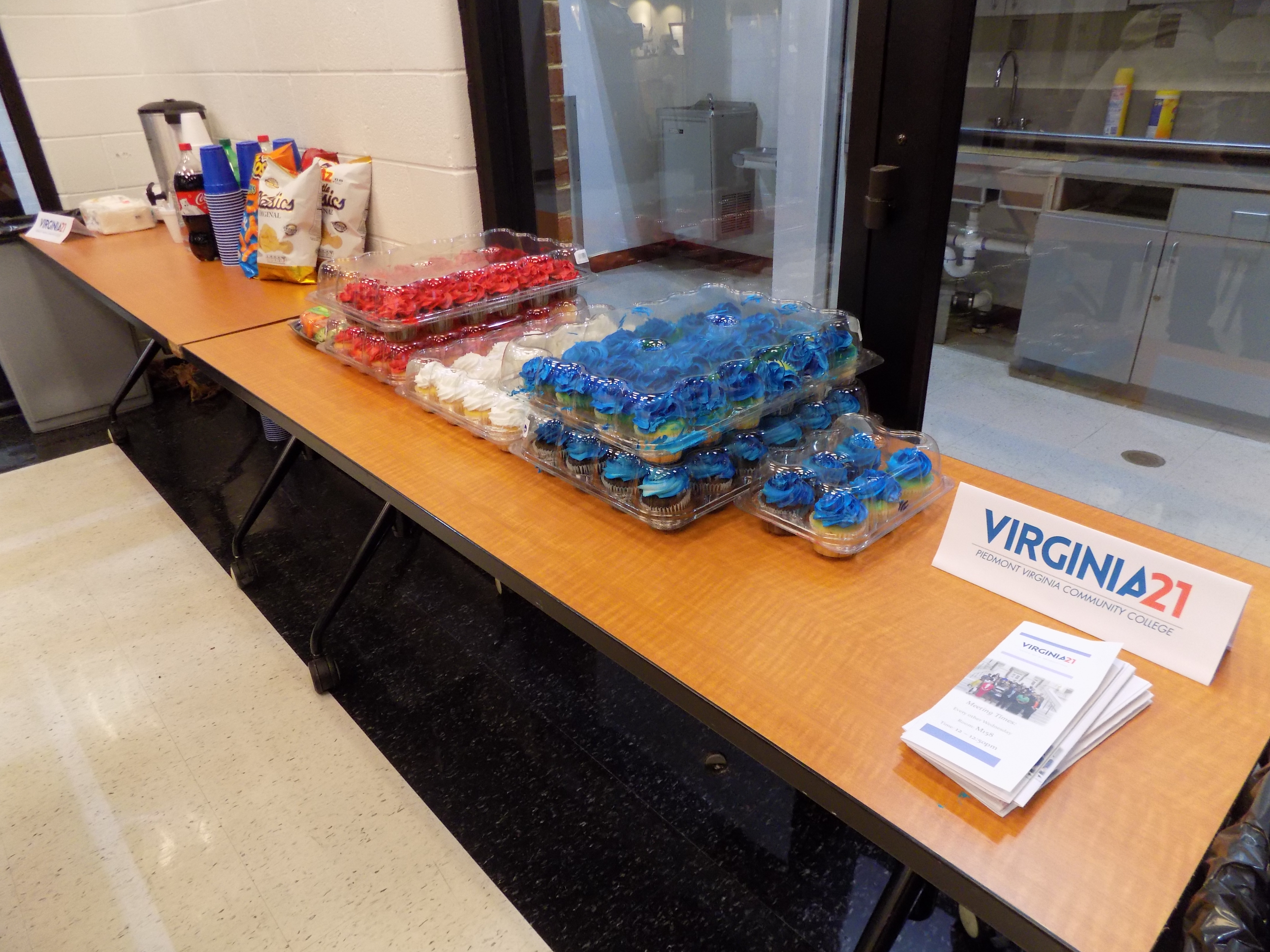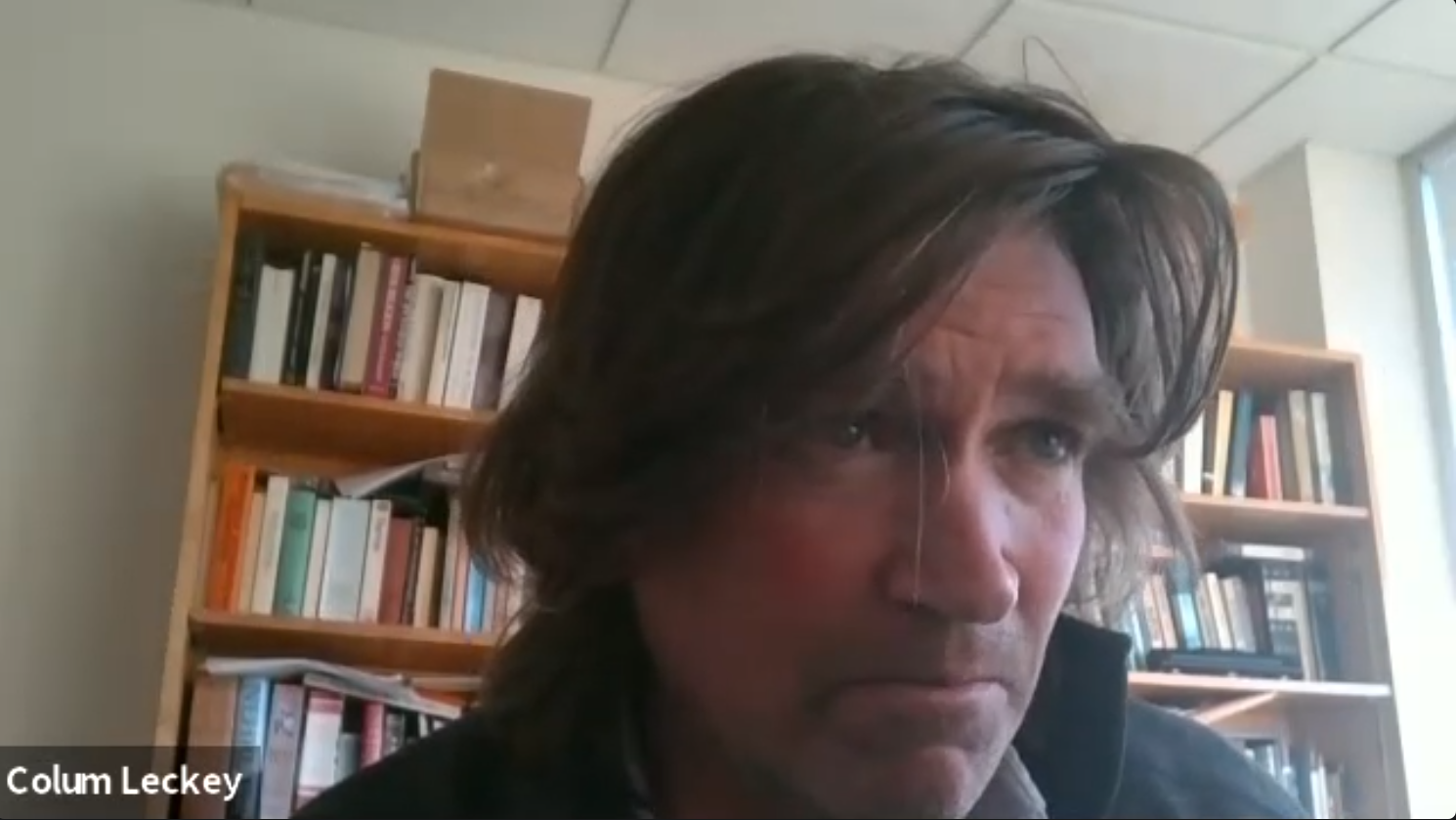
Professor Colum Leckey reflects on his teaching journey
Colum Leckey, professor of history at PVCC, has always been passionate about the study of the past. From the responsibilities of a Civic Engagement course, the early days of being a professor, and the essence of world history, Leckey’s teaching style has been anything but stagnant.
Leckey considers himself to constantly be learning and questioning the world.
“I’ve always been curious,” Leckey said. As a self-proclaimed “bookworm,” Leckey has a natural inclination to the analysis of historical documents.
“I guess I’ve always had a knack for history,” he said, and then took a brief pause to reflect. Growing up, his father was always reading about history, and Leckey has no doubt that his passion was passed on to him. Leckey remembered his old history professors at the University of Virginia and the University of Pittsburgh who inspired him to teach. He especially admired their “ability to frame a good discussion,” he said.
Having taught for over 22 years, Leckey still remembers the difficulties of starting out.
“The first years of teaching college were really, really hard for me, and I think they are for all teachers,” Leckey said. The most difficult part is acclimating to your environment and “developing your own approach and your own identity as a historian and as a teacher, and you don’t know it yet, but you still don’t have a style yet,” Leckey said, laughing.
When starting out, Leckey tried to emulate his professors to no avail.
“I tried to do what [my professors] did, and I found out, in a zig-zaggy kind of way, that I am not them,” Leckey said. It took time for Leckey to find his own style, but he quickly became comfortable in his approach to lectures.
One thing students quickly learn is that Leckey will call them out to include their perspectives in class discussions.
“I work hard to include all the students as much as possible in class, even if it means sometimes putting students on the spot. Kind of putting them on the hot seat and enduring long, uncomfortable silences,” Leckey said.
This can be difficult for new students to adapt to, but quickly becomes second nature once they are used to it. For myself, the idea was intimidating at first, but I ended up sharing opinions on topics in class where I never would have raised my hand traditionally. It began to feel like my input was wanted in the class discussions.
Leckey acknowledges that there were days when he had just felt off or had a terrible lecture.
“In the first five to eight years, even early into Piedmont, I had some god-awful days, just horrible days. Nothing I did worked, and I still feel that way sometimes, but little did I know at the time, I was steadily improving and working out my own method of teaching: one that suited me and one that suited my students as well. And I’m still striving for it,” Leckey said.
Leckey applies his same philosophy on learning to teaching; he is always improving and experimenting.
As for Civic Engagement courses, a new program brought by the Virginia Community College System (VCCS) for community colleges statewide, history courses naturally lend themselves to this prospect.
“I really want students to understand the Enlightenment origins of the American political system, more than anything else. I think it’s really important for us to examine the intellectual, ideological, and cultural roots of our system,” Leckey said.
Leckey argues that understanding political origins of the United States is crucial to being civically engaged and educated.
“I think it’s really important for all students who are civically engaged to have some semblance of understanding about the Enlightenment origins of modern politics,” Leckey said.
Leckey particularly struggles with a dilemma as old as time: teaching the uninterested.
“The main obstacle is those who are [not interested in history] are in a pretty big majority, so you gotta make it interesting for them, or at least try to for 70 percent of the time,” Leckey said.
Leckey uses dynamic and active methods during class to get their attention but recognizes that it is harder to get through to some. He described that it’s difficult to portray history as important or as useful to most students at first.
“Trying to convince [students] to find meaning in the dead past for its own sake is a challenge,” Leckey said.
Leckey describes world history as “One of three things, sometimes all three things at the same time: [first], it is the comparative study of past societies and cultures. [Second], it’s intercultural. Intercivilizational, interhemispheric, it has to emphasize the different connections between civilizations. You cannot study one civilization in isolation. [Third], I call it modular, and by that I mean when we zero in on one particular society or process, we look upon it as a model that then gets exported or emulated in other parts of the world, and we do a lot of that in History 112.” Leckey’s voice is confident as he relates these ideas to topics he has discussed in class, almost as if he is giving just another lecture.
The history of the world is reliant on one of its most integral systems: climate.
“You cannot teach world history without teaching climate,” Leckey said. He then shared his own personal account of the local climate growing up.
“I’ve lived in Virginia almost all of my life, winter has disappeared. There is no winter anymore. And it’s man-made,” Leckey said, with a serious expression on his face. It was clear that he meant that statement whole-heartedly and that he has coped with that disappointment. Pointing to his comparative nature, he focused on the idea that the present influences the study of the past.
“What we’re seeing now [with regards to COVID-19] is compared to the Spanish Flu,” Leckey said. Like he pointed out earlier, the interest in climate change provokes research into things like the holocene, for instance.
Other than being a history professor at PVCC, Leckey is also known to conduct research of his own and publish his studies.
“When I finish my current research project, I really wanna focus on the introduction of mirrors in the 18th century,” Leckey said. He then described stories in history of people being fascinated by mirrors, indicating how new the idea was to be able to see yourself. “Do you see all of [the questions] this opens up?” Leckey said, excitedly. It’s no doubt that Professor Leckey is passionate about history.
“[With teaching,] There’s no set of directions, you know. There’s a lot of trial and error, but it’s a marathon and you have to accept your own limitations—that’s really important,” Leckey said.


